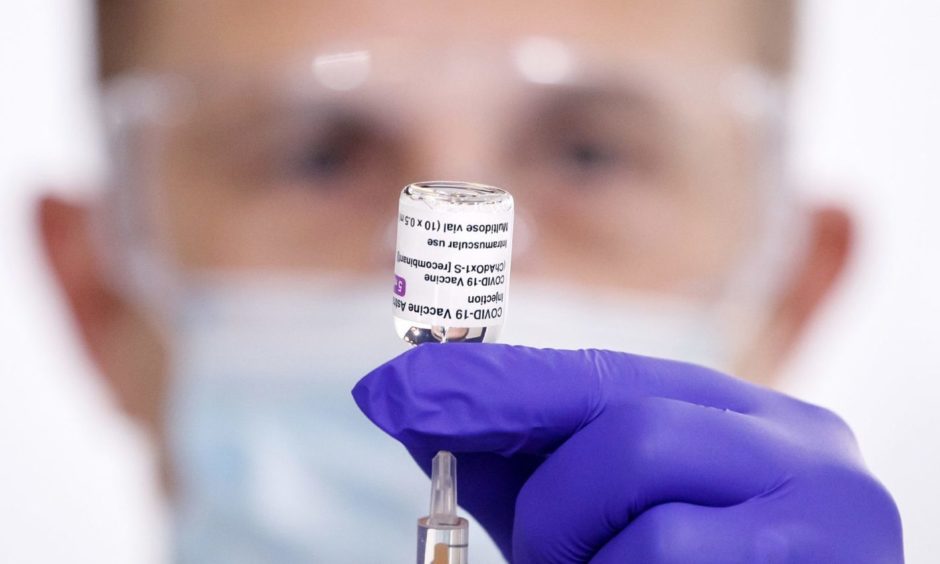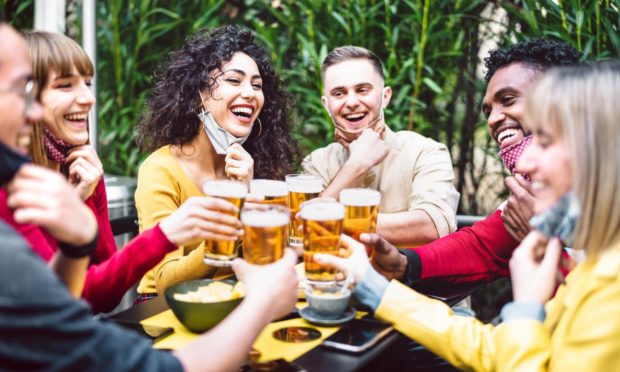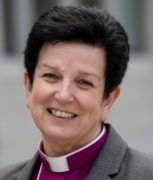This weekend I took a break away from home, able to enjoy some simple things in life that have been denied through the past months of pandemic.
Being out and about again, more free than for a good while, brought home to me afresh how important it is to vaccinate the whole world, so that people everywhere can live full lives without fear of illness.
I travelled away from Aberdeen and stayed in a cottage. I ate my meals at the local pub, where I was able to meet up with friends I had not seen or spoken with for some time.
One of the great pleasures of the weekend was sitting outside in the sun, slowly drinking a glass of beer, and chatting with people I had never met before who were sitting at nearby tables. It seemed like everyone wanted to say hello; everyone had a tale to tell.
For all of us, our social group has been restricted, to those we with live, or those we meet up with on Zoom. Now in hospitality settings there is a more random mixing, a chance to speak with people whose lockdown stories we had not heard already. Those I spoke with were busy making plans, new freedoms bringing renewed opportunities.
We still have some way to go
The rollout of Covid vaccines in the UK has been efficient, and because of this our freedoms are increasing once again. Even so, we have some way to go.
I would very much like to visit friends in Ireland, but will have to wait until there is sufficient confidence in that country that the UK is getting on top the spread of variants here to be able to make the journey. Restrictions will remain as long as there are some parts of the world where people are not fully vaccinated and variants are appearing.
For us to be able to return to pre-pandemic freedoms, the whole world needs to be vaccinated.
Covid must be controlled everywhere to maintain normal life at home
On June 12, the leaders of the G7 countries are meeting in Cornwall. On their agenda is the subject of vaccinations: who will get them and who will pay for them.

For some, the case will have to be made that vaccinating the world, including those in the poorest countries, is a priority.
For me it would be sufficient that people live without fear of illness from coronavirus and that lives are protected. For others, the argument might be made that it is only when the world is vaccinated that it will be possible to stop the virus spreading, and so mutating and reappearing to threaten us again.
The changes brought through the present vaccination programme here will only remain if Covid-19 is controlled everywhere.
79% of us think G7 should pay for vaccines globally
Whatever the argument used, the discussion at the G7 should put the poorest people in the world first. Of course there will need to be details of who will pay for the vaccines, with an appropriate sharing of costs. We should expect richer countries to pay more, not least because they have more to lose if they have to lock down again.
We have heard again and again through the last year or so that we are only safe when we are all safe
A letter from over 200 world leaders – past prime ministers, presidents and businesspeople – has been sent to the G7. This letter proposes that two-thirds of the cost of the vaccines is met by the G7 countries. The cost of this is estimated at 30p per person per week in the UK – a fraction of the price of the pint of beer I so enjoyed in the sun this last weekend.
Save the Children found in a survey that 79% of people in the UK thought the G7 should pay for the vaccines.
It’s about long-term health, not a short-term fix
The agreement will need to be about more than the cost of vaccines. The G7 would do well to consider how to share research knowledge, including drug patents and license agreements. This is about long-term health, not just a short-term fix.
We have heard again and again through the last year or so that we are only safe when we are all safe. We have come to understand what this means as we have adapted our behaviour for the sake of our near neighbours, those who live on our street or in our towns.
As we become aware of the needs of our neighbours far away, the time has come to move them up the list as a priority, so that they too can return to lives of greater freedom. When it comes to a pandemic the world, it turns out, is our village.
The Rt Rev Anne Dyer is Episcopalian Bishop of Aberdeen and Orkney and Scotland’s first female bishop











